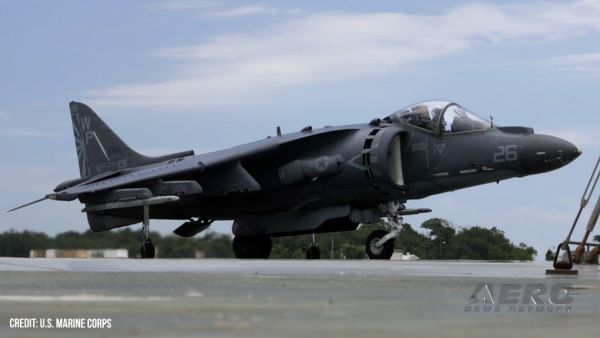Thu, May 24, 2018
Deadline To Submit Comments Is June 18
TSA is reopening the comment period for the interim final rule (IFR) that established the Alien Flight Student Program (AFSP). TSA is in the process of finalizing the IFR with modifications to improve the efficiency and efficacy of this program consistent with recently-ordered regulatory reform requirements.

To ensure TSA has adequately considered relevant options, the period on the IFR is being reopened. In particular, TSA is requesting comments on three types of issues: Scope of security threat assessments (STAs), including who should receive them and the frequency of such assessments; options for reducing the burden of recordkeeping requirements, including the use of electronic records; and sources of data on costs and other programmatic impacts of the rule. TSA is reopening the comment period for an additional 30 days. Comments must be received by June 18, 2018.
TSA published the 2004 IFR to fulfill the requirement in Sec. 612(a) of the Vision 100-Century of Aviation Reauthorization Act. (2) The IFR created part 1552, Flight Schools, in title 49 of the Code of Federal Regulations (CFR). The regulation applies to flight schools and to individuals who apply for or receive flight training. TSA issued exemptions and clarifications in response to comments on the regulation and questions raised during operation of the program since 2004, most of them within the first year of its implementation. (3) In 2009, TSA published a notice to announce the imposition of fees for processing STAs for alien flight students. (4)
More recently, between 2012 and 2016, members of the aviation industry, the public, and Federal oversight organizations have identified areas where the program could be improved, including specific recommendations from the Aviation Security Advisory Committee regarding this regulation. TSA's internal procedures and processes for vetting applicants also have evolved and matured.
As TSA considers available options for maximizing security benefits while minimizing costs, comments are being solicited on the following specific issues:
- Costs and benefits of requiring flight training providers to undergo a STA. Currently, alien flights students must undergo a STA, but flight school employees responsible for compliance with TSA's requirements are not required to undergo a STA.
- Impact of modifying STA requirements for alien flight training candidates from an event-based requirement to a time-based requirement. Currently, TSA requires individuals to be vetted before each training event. This requires payment of fees for each training event to complete the STA process. With the expansion of recurrent vetting programs, it may be possible to allow for a time-based STA requirement (such as once every three years) rather than an STA for each training event.
- Appropriate compliance requirements for parties involved in leases of aircraft, aircraft simulators, and other flight training equipment. For example, TSA could add new regulatory terms and definitions regarding agreements between companies who lease aircraft, aircraft simulators, instructor services, and/or flight training equipment to FAA-certified and non-FAA-certified flight training providers who engage in training in the United States, to clarify which party to such transactions should comply with AFSP reporting and recordkeeping requirements.
- Impact of allowing regulated parties to use electronic recordkeeping, in whole or in part, to establish compliance. As much of the information required under this program is currently submitted to TSA in electronic format, TSA could provide validation of information submitted and eliminate the need for all records to be maintained in paper copy by the flight school. To the extent available, please include data on the costs of maintaining paper records for flight schools and how much savings would occur if TSA allowed flight schools to only submit electronic records.
- Implications of refining the scope of STAs for candidates who train with FAA-certified flight instructors operating outside the United States.
- Sources of data on the number or percentage of flights schools that only train U.S. citizens. This information can be used to streamline program implementation and validate cost estimates for the program.
TSA encourages submission of any other data or information available we should consider in our review of the regulation. This information is necessary for TSA to identify areas for potential deregulation and cost savings, limit vulnerabilities from insider threats, and estimate the costs of implementing the final rule.
(Source: TSA)
More News
LinxUs System Adds Capabilities for Data-Driven Operators Textron Aviation announced another option for operators processing their post-flight data, adding interoperability with GE>[...]
Aero Linx: The de Havilland Moth Club Ltd The de Havilland Moth Club evolved from a belief that an association of owners and operators of Moth aeroplanes should be formed to create>[...]
(Pilot) Inadvertently Applied Excessive Braking Action, And The Airplane Nosed Over Analysis: The pilot reported that, while landing at a remote, rough and uneven airstrip in a tai>[...]
“MCADT is committed to rapidly integrating armed first-person view drones into the FMF, enhancing small-unit lethality and providing organic capabilities that warfighters cur>[...]
From 2017 (YouTube Edition): Major Engine Supplier Joins Forces With Small Aircraft Manufacturer… GE recently made an agreement with Venom Aircraft to supply engines for the>[...]
 Citation Operators Get Another Flight Data Connection for QA
Citation Operators Get Another Flight Data Connection for QA ANN's Daily Aero-Linx (06.01.25)
ANN's Daily Aero-Linx (06.01.25) NTSB Final Report: Bellanca 8GCBC
NTSB Final Report: Bellanca 8GCBC Aero-News: Quote of the Day (06.01.25)
Aero-News: Quote of the Day (06.01.25) Classic Aero-TV: High-Speed Match-up - Venom and GE Rebirth A Legend
Classic Aero-TV: High-Speed Match-up - Venom and GE Rebirth A Legend



